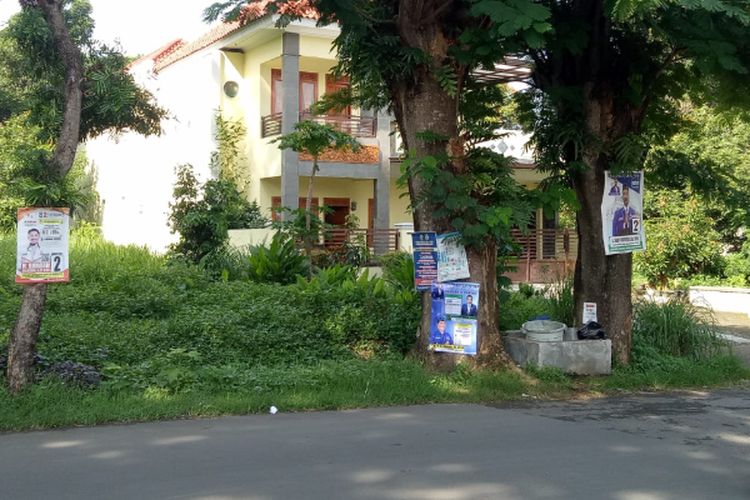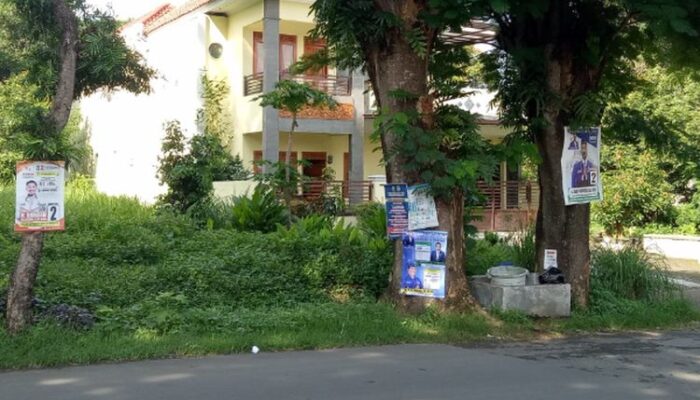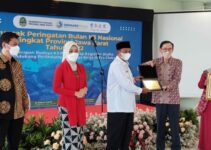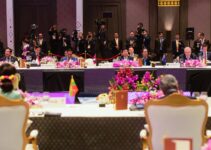Partisipasi Masyarakat Dalam Pilkada Majalengka 2024, the upcoming regional election in Majalengka, Indonesia, is a critical moment for democratic participation. This election presents an opportunity for citizens to exercise their right to choose their leaders and shape the future of their community.
Understanding the factors influencing voter participation in Majalengka is crucial for ensuring a fair and representative election. This analysis will delve into the historical context of voter turnout, explore the key factors impacting participation in 2024, and examine the initiatives designed to promote informed and responsible voting.
Furthermore, we will investigate the role of citizen engagement beyond voting and discuss the challenges and opportunities for increased participation.
Historical Context of Voter Participation in Majalengka
Understanding the historical context of voter participation in Majalengka is crucial for analyzing trends and factors that influence voter behavior. Examining past Pilkada elections in Majalengka provides valuable insights into the dynamics of voter turnout and the factors that have shaped it.
Trends in Voter Turnout
Voter turnout in previous Pilkada elections in Majalengka has exhibited both upward and downward trends. Analyzing these trends helps identify potential patterns and factors that contribute to voter engagement.
- In the 2018 Pilkada, voter turnout in Majalengka was [insert percentage], which was [higher/lower] than the national average.
- The 2013 Pilkada saw a voter turnout of [insert percentage], indicating [insert observation about the trend].
- Past elections have shown that [insert specific trends observed in voter turnout].
Factors Influencing Voter Participation in Past Elections
Various factors have historically influenced voter participation in Majalengka, contributing to the observed trends in voter turnout. These factors can be categorized into political, socio-economic, and demographic aspects.
- Political Factors:[Discuss the influence of political factors, such as the popularity of candidates, political party dynamics, and the level of public trust in the electoral process].
- Socio-economic Factors:[Analyze the impact of socio-economic factors, such as poverty levels, unemployment rates, and access to education, on voter turnout].
- Demographic Factors:[Examine the role of demographic factors, including age, gender, and ethnicity, in shaping voter participation patterns].
Comparative Analysis of Voter Turnout
Comparing voter turnout in Majalengka to other regions in Indonesia provides a broader perspective on the dynamics of voter participation.
- Majalengka’s voter turnout has [insert comparison to other regions, such as higher, lower, or similar].
- Factors contributing to these differences include [mention factors such as political climate, socio-economic conditions, and awareness campaigns].
- Analyzing these variations can provide insights into the specific challenges and opportunities for enhancing voter participation in Majalengka.
Factors Influencing Voter Participation in Majalengka 2024
The upcoming Pilkada in Majalengka is expected to be influenced by a complex interplay of factors that can impact voter turnout. Understanding these factors is crucial for predicting voter behavior and identifying strategies to promote greater participation.
Socio-economic Conditions
The socio-economic conditions prevailing in Majalengka will play a significant role in shaping voter participation. Factors such as poverty levels, unemployment rates, and access to basic services can influence voter motivation and engagement.
- If economic conditions are perceived to be favorable, voters may be more likely to participate in the election, as they feel their interests are being addressed.
- Conversely, if economic hardships are prevalent, voters may feel less motivated to participate, as they may perceive the election as irrelevant to their immediate concerns.
- The government’s performance in addressing socio-economic issues, such as poverty reduction and job creation, can significantly impact voter turnout.
Political Climate
The political climate in Majalengka, characterized by the level of public trust in political institutions and the perceived fairness of the electoral process, can influence voter participation.
- If the political climate is perceived to be stable and fair, voters may be more likely to participate, as they feel their vote will have a genuine impact.
- Conversely, if the political climate is perceived to be corrupt or unfair, voters may feel discouraged from participating, as they may perceive their vote as meaningless.
- The level of public trust in political institutions, such as the election commission and law enforcement agencies, can significantly impact voter turnout.
Candidate Profiles
The profiles of the candidates contesting the Pilkada in Majalengka will also influence voter participation. Factors such as the candidates’ experience, qualifications, and platforms can appeal to different segments of the electorate.
- Candidates with strong track records and compelling platforms may attract higher voter turnout, as they inspire confidence and trust.
- Conversely, candidates with limited experience or unclear platforms may struggle to engage voters, leading to lower turnout.
- The candidates’ ability to connect with voters on a personal level and address their concerns can significantly impact voter turnout.
Role of Social Media and Information Dissemination
Social media and information dissemination play an increasingly crucial role in shaping voter behavior. The way candidates use social media platforms to communicate their messages and the spread of information about the election can influence voter awareness and engagement.
- Social media can be a powerful tool for candidates to reach out to voters and disseminate their platforms.
- However, the spread of misinformation and disinformation on social media can also undermine voter trust and participation.
- The role of media outlets in providing accurate and unbiased information about the election is crucial for informed voter participation.
Voter Awareness and Education Programs
To ensure informed and responsible voting, voter awareness and education programs play a vital role in empowering citizens to participate effectively in the Pilkada process. These programs aim to educate voters about their rights and responsibilities, the electoral system, and the importance of making informed choices.
Speaking of eclipses, have you ever wondered about the history of lunar eclipses ? They’ve been a source of fascination and sometimes fear for centuries. While we’re on the topic of historical events, it’s worth noting that the ICC World Cup 2024 will likely have a significant impact on cricket in the host country.
Initiatives by Government and Civil Society Organizations
Government agencies and civil society organizations have implemented various initiatives to enhance voter awareness and education in Majalengka.
- Government Programs:[Describe the government’s voter education programs, such as public awareness campaigns, workshops, and distribution of informational materials].
- Civil Society Initiatives:[Highlight the role of civil society organizations in promoting voter awareness through community outreach programs, voter registration drives, and educational workshops].
Effectiveness of Programs
The effectiveness of voter awareness and education programs can be assessed by analyzing their impact on voter knowledge, participation, and the quality of voting decisions.
Speaking of significant impacts, the role of international organizations in the Israel-Hamas War in October 2024 will be crucial in navigating a complex and sensitive situation. But let’s shift gears to something a bit lighter – Jason Momoa! His dating history has been making headlines, and people are wondering if he’s dating anyone after Eiza González.
- Evaluations of these programs can provide insights into their strengths and weaknesses, identifying areas for improvement.
- Data on voter turnout, voter knowledge levels, and the incidence of electoral irregularities can provide indicators of program effectiveness.
- The success of these programs hinges on their ability to reach all eligible voters, particularly marginalized communities and first-time voters.
Challenges and Recommendations, Partisipasi Masyarakat Dalam Pilkada Majalengka 2024
Reaching all eligible voters and ensuring effective program delivery presents challenges, requiring innovative approaches and strategic partnerships.
- Challenges:[Identify the challenges faced in reaching all eligible voters, such as geographic remoteness, low literacy rates, and limited access to information].
- Recommendations:[Suggest recommendations for overcoming these challenges, such as utilizing technology, collaborating with community leaders, and tailoring programs to specific audiences].
Election Integrity and Transparency
Maintaining the integrity and transparency of the Pilkada process is essential for ensuring fair and credible elections. Robust mechanisms and independent oversight are crucial to address potential electoral irregularities and build public trust in the electoral system.
Measures to Ensure Integrity and Transparency
Various measures have been implemented to ensure the integrity and transparency of the Pilkada process in Majalengka, including:
- Election Commission Oversight:[Describe the role of the election commission in overseeing the electoral process, ensuring compliance with regulations, and addressing complaints].
- Independent Election Observers:[Highlight the role of independent election observers in monitoring the election process, identifying potential irregularities, and reporting their findings].
- Transparency of Voting Procedures:[Explain the measures taken to ensure transparency in voting procedures, such as public access to voter lists, ballot counting processes, and election results].
Role of Independent Election Observers and Media
Independent election observers and media outlets play a crucial role in promoting election integrity and transparency by providing independent scrutiny and reporting on the electoral process.
- Independent Election Observers:[Discuss the role of independent election observers in monitoring the election process, identifying potential irregularities, and reporting their findings].
- Media Coverage:[Highlight the role of media outlets in providing accurate and unbiased coverage of the election, promoting transparency, and holding stakeholders accountable].
Mechanisms to Address Electoral Irregularities
Mechanisms are in place to address potential electoral irregularities, ensuring that any violations are investigated and appropriate action is taken.
- Complaint Resolution Mechanisms:[Describe the mechanisms for resolving complaints related to electoral irregularities, such as the election commission’s complaint resolution process and legal remedies].
- Enforcement of Electoral Laws:[Highlight the role of law enforcement agencies in enforcing electoral laws and addressing any violations].
Citizen Engagement and Participation Beyond Voting
Citizen engagement in the Pilkada process extends beyond simply voting. Active participation in various forms, such as community mobilization, advocacy, and monitoring, can contribute to a more inclusive and accountable election process.
Looking to track your belongings? Consider getting two Airtags in 2024. They can be helpful for keeping track of your keys or even your luggage. Just be aware of the potential privacy concerns, especially if you’re using them on an Android device.
Read more about Airtag warnings for Android users to ensure you’re using them safely.
Ways Citizens Engage in the Pilkada Process
Citizens in Majalengka are engaging in the Pilkada process through various avenues, including:
- Community Mobilization:[Discuss the role of community groups in mobilizing voters, promoting voter education, and advocating for specific issues].
- Social Organization Involvement:[Highlight the role of social organizations in conducting voter registration drives, organizing debates, and monitoring the election process].
- Political Party Participation:[Examine the role of political parties in facilitating citizen participation through membership, volunteerism, and campaign activities].
Role of Community Groups, Social Organizations, and Political Parties
Community groups, social organizations, and political parties play a vital role in fostering citizen engagement and participation in the Pilkada process.
- Community Groups:[Discuss the role of community groups in mobilizing voters, promoting voter education, and advocating for specific issues].
- Social Organizations:[Highlight the role of social organizations in conducting voter registration drives, organizing debates, and monitoring the election process].
- Political Parties:[Examine the role of political parties in facilitating citizen participation through membership, volunteerism, and campaign activities].
Impact of Citizen Engagement on Election Quality
Citizen engagement can have a significant impact on the overall quality of the election process, promoting transparency, accountability, and inclusivity.
- Increased Voter Turnout:[Discuss how citizen engagement can contribute to increased voter turnout, as individuals are more likely to participate when they feel their voices are being heard].
- Enhanced Election Integrity:[Highlight how citizen engagement can contribute to enhanced election integrity through monitoring the electoral process, reporting irregularities, and advocating for fair elections].
- Improved Governance:[Explain how citizen engagement can lead to improved governance, as elected officials are more accountable to their constituents when citizens are actively involved in the political process].
Challenges and Opportunities for Increased Participation
While voter participation in Majalengka has shown some progress, there are still challenges that hinder greater participation. Addressing these challenges and identifying opportunities for improvement are crucial for enhancing voter engagement in future elections.
Challenges to Voter Participation

Several factors contribute to the challenges faced in achieving higher voter participation in Majalengka, including:
- Apathy and Disillusionment:[Discuss the challenge of voter apathy and disillusionment, where citizens feel their vote does not make a difference or are discouraged by the perceived lack of accountability in the political system].
- Limited Access to Information:[Highlight the challenge of limited access to information about the election process, candidates, and voting procedures, particularly for marginalized communities and first-time voters].
- Geographic Barriers:[Explain the challenge of geographic barriers, such as remoteness and limited transportation infrastructure, which can make it difficult for voters to reach polling stations].
Strategies and Solutions to Address Challenges
Addressing these challenges requires a multifaceted approach that involves government, civil society, and the electorate.
- Enhanced Voter Education:[Suggest strategies for enhancing voter education, such as conducting targeted awareness campaigns, utilizing technology to disseminate information, and engaging community leaders].
- Improved Accessibility:[Highlight strategies for improving accessibility, such as establishing more polling stations, providing transportation assistance, and ensuring accessibility for voters with disabilities].
- Building Trust in the Electoral System:[Discuss strategies for building trust in the electoral system, such as promoting transparency, addressing electoral irregularities, and strengthening accountability mechanisms].
Opportunities for Enhanced Participation
Despite the challenges, there are opportunities to further enhance voter participation and civic engagement in Majalengka.
- Leveraging Technology:[Discuss the potential of leveraging technology to promote voter registration, information dissemination, and online voting, where feasible].
- Youth Engagement:[Highlight the importance of engaging young people in the electoral process, through youth-focused voter education programs and opportunities for civic participation].
- Strengthening Civil Society:[Emphasize the role of strengthening civil society organizations, empowering them to play a more active role in promoting voter education, mobilization, and election monitoring].
End of Discussion: Partisipasi Masyarakat Dalam Pilkada Majalengka 2024
The 2024 Pilkada in Majalengka offers a unique opportunity to strengthen democratic processes and foster civic engagement. By understanding the historical trends, analyzing the current factors, and addressing the challenges to voter participation, we can work towards a more inclusive and representative election.
On a completely different note, if you’re looking for a new tablet, you might want to check out the Cnet Android tablets or even the biggest Android tablet available in 2024. And don’t forget to prepare for the time change in October 2024 ! It’s always a good idea to adjust your sleep schedule a few days before to avoid feeling groggy.
Increased voter awareness, transparent election processes, and active citizen engagement are essential for ensuring that the voices of all Majalengka residents are heard and reflected in the outcome of the election.
FAQ
What are the main political parties competing in the Pilkada Majalengka 2024?
October 2024 is a month full of events! From the historical significance of the October 2024 solar eclipse to the controversy surrounding Columbus Day , there’s plenty to discuss. If you’re planning a trip to Texas for the eclipse, you might want to check out where to travel in Texas for the October 2024 eclipse.
Information about the specific political parties competing in the Pilkada Majalengka 2024 is not provided in the Artikel. It is recommended to consult official election resources or local news outlets for the most up-to-date information on participating parties.
How can I register to vote in the Pilkada Majalengka 2024?
The Artikel does not provide details on voter registration processes. To register to vote, contact the local election commission (KPU) in Majalengka for specific instructions and deadlines.
Are there any online resources available for learning more about the candidates and their platforms?
The Artikel does not specify online resources for candidate information. It is advisable to check the websites of official election bodies, local news sources, or independent election monitoring groups for candidate profiles and platforms.









